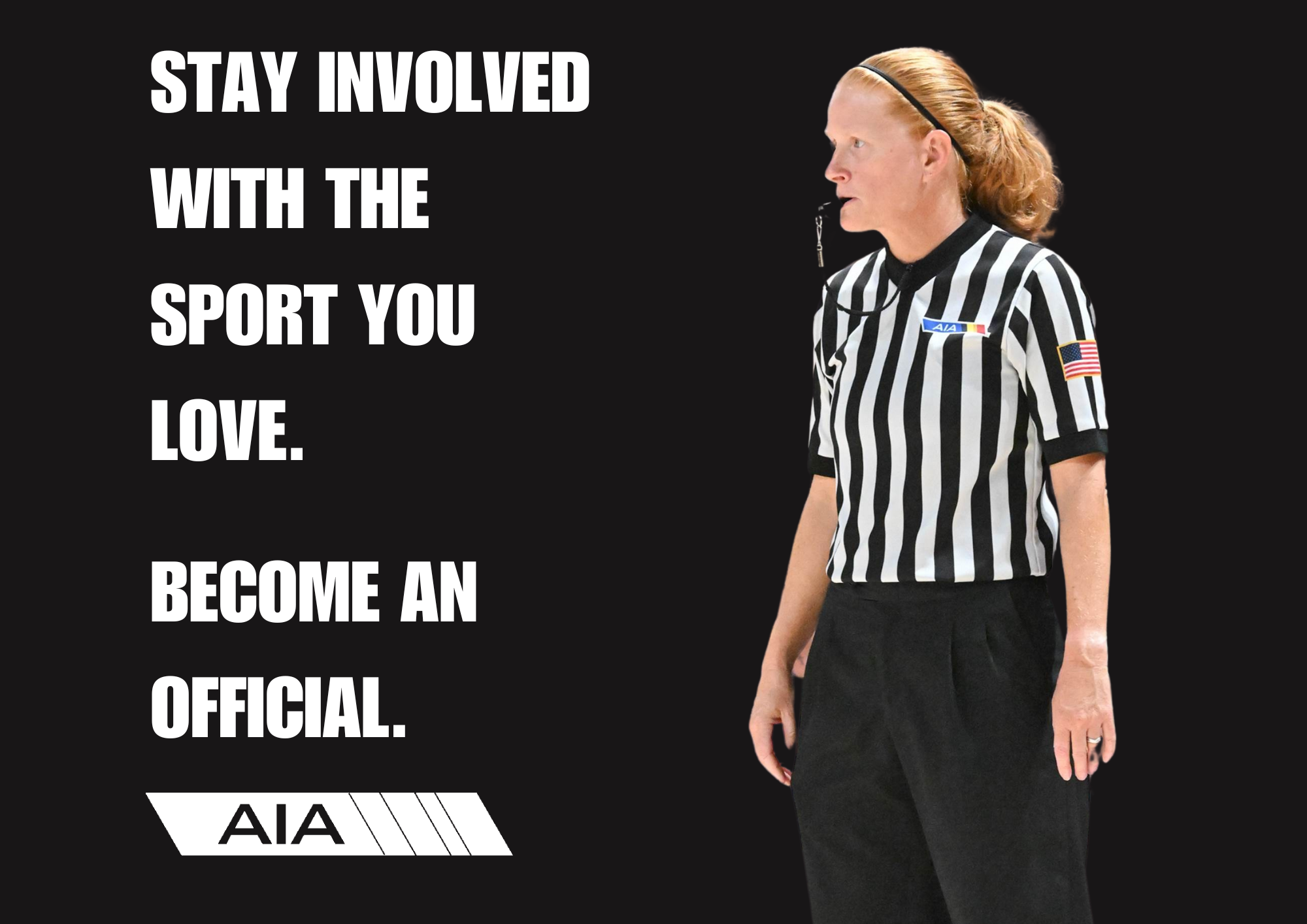Mercy rule and the bigger picture
May 16, 2021 by Caleb Gottry, Chandler Preparatory Academy

Caleb Gottry attends Chandler Preparatory Academy and is a member of the AIA’s Student SID program.
As the AIA baseball season comes to a close, it is easy to look back and reflect on the most crushing losses and also, the greatest of victories. Not every big win is celebrated by the team, the coaches, and the parents. Some games are just hard to watch and put coaches and players in awkward and difficult to navigate situations. Several weeks ago, after a particularly dominating victory against a fellow 2A team, I asked Chandler Prep Head Coach, Martin Vilaboy how he balanced playing the sport well while still showing mercy to the other team. That conversation got both of us thinking about this problem of lopsided victories and losses and he suggested exploring the issue with others and in print. Ultimately, this is one of any coach’s main concerns. Horizon Honors Head Coach, Tom Kandler puts it like this:
“We teach our kids to play hard and play the right way. We teach that they are to respect the game and our opponents no matter if we are ten runs up or ten runs down. Bottom line is I'm hired to coach my team and my main concern is to improve our players as athletes and also as young men.”
First of all, it is important to realize and admit that all teams in high school, even those in the same conference or region, are not equal. There is a wide disparity of skill at the high school level and teams can also go from winning a state championship to not qualifying for the playoffs, especially if they had a senior-heavy Varsity team. Regardless of the disparity, however, every team, even from a school that recently entered the AIA, deserves to be able to play so that they might improve and grow their program. That being said, no one likes to lose in a blowout and not many like to win in a blowout either.
Certain aspects of baseball only serve to amplify the issue. Unlike most other sports, baseball is not confined by the clock, so innings can be mercilessly extended. The pitch count rules also complicate the issue as smaller teams have a difficult time finding quality pitchers for every game in a season. The AIA has enacted certain mercy rules, one of which minimizes the number of innings. Dan Nero, AIA Tournament Coordinator, explains:
“The AIA membership of schools creates the policies and bylaws, which includes mercy rules. The AIA staff simply helps direct the rules. There has been much discussion over the years - which is ongoing. Baseball is one of the tougher sports to enact these rules – as mentioned on the varsity level there is no time limit. A 10-run differential after at least 4 ½ innings is what we have now.”
Some coaches think expanding this rule is the solution to the problem. Gilbert Christian Head Coach, Bob Hershey, suggests
“maybe adding, a down by 15 after 4 and a down by 20 after 3. The rest is too complicated to legislate. Each coach has to do their best to figure out what's right for their team and the other team but you can't legislate sportsmanship or competence.”
While sportsmanship is difficult or even impossible to legislate, another coach thinks that furthering the mercy rule might not be the best response. Tom Kandler (Horizon Honors) thinks that
“this would do more harm than good because I for one will be trying to end the game as quickly as I can to save pitching. Meaning if the score was 14-0 in the bottom of the fourth and we had a runner on base, I would be much more inclined to steal a base to end the game instead of now where we would be station to station.”
Regardless, with the mercy rule in place at present, there still may be some ways to lessen the frustrations of both teams in a blowout in the first few innings that can be so long and painful. One of the clearly merciful gestures that most coaches enact is to stop stealing bases and, in truly unsurmountable leads, stop taking bases on passed balls. Not only can this be disrespectful to the other team, but risky steals can also be unsafe and possibly lead to injuries.
Only taking bases on hits, though, can also be disrespectful to a losing team if there is an overconfident or cocky nature to their actions. Not only do coaches like Tom Kandler (Horizon Honors), who do not take extra bases in a blowout victory, “not want to punish our players achievements of success,” but coaches like Martin Vilaboy (Chandler Prep) acknowledge that “you want to respect the game and you want to respect the other team.” Taking second base on a passed ball, for example, is not unsafe for the baserunner and is a way to respect the way the game should be played without running up the score. These decisions are so difficult to make and something even veteran coaches struggle with.
Decisions on whether to strike out on purpose, walk off bases, or take out starters follow in turn. Difficulties in these scenarios include coaches not wanting to form bad habits at the plate or on base and coaches looking to the rest of the season in wanting to prepare their starters for the state tournament.
While it is important for coaches to consider carefully which of these gestures they want to put in place for their team against a less skilled team, the overwhelming response from the AIA and coaches to lessen the frustrations of a blowout was not a specific baseball strategy. It was to continue to better build a community of respect among the players. Perhaps there is no specific set of guidelines coaches can follow or the AIA can put in place that put this frustration to rest, but being able to acknowledge truly that everyone has the same goal of respect in whatever ways they think it best is an important step. Dan Nero (Tournament Coordinator) puts it this way:
“The goal of all schools in the AIA membership is to win, but the ‘bigger picture’ is to build character and integrity with the young people in our programs. Our best coaches, administrators and school support staff are helping students focus on winning with humble respect, losing with composure, and the continuing desire to improve as individuals and as a team.”
Thank you to Chandler Prep Coach Martin Vilaboy for helping me navigate how best to address this issue and to Coach Vilaboy, Coach Kandler, Coach Hershey, and Dan Nero for contributing their thoughts. Titan Up.



